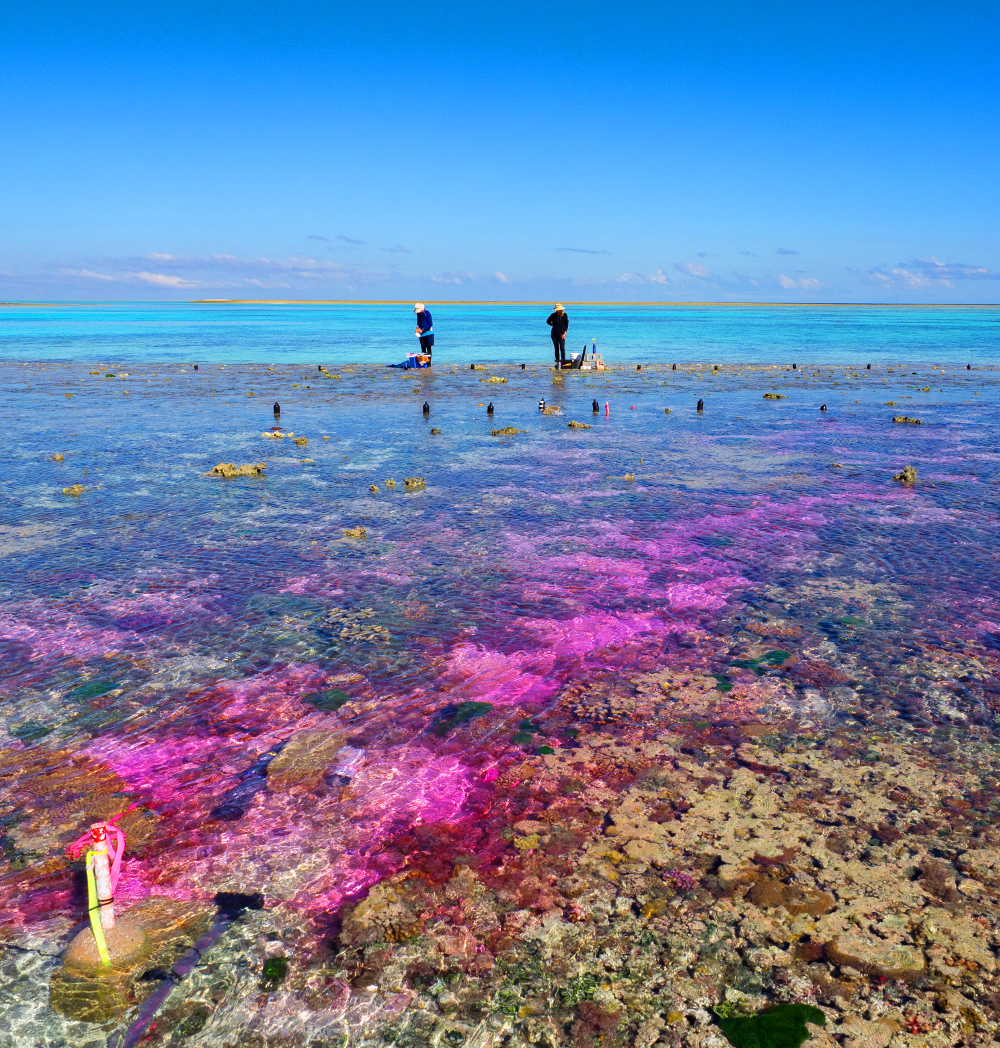Real reef study shows acid effect
 A large-scale, real-world experiment has shown the risk of increasing ocean acidification to the Great Barrier Reef.
A large-scale, real-world experiment has shown the risk of increasing ocean acidification to the Great Barrier Reef.
Researchers exposed a 400 square metre area of natural coral reef community in the southern Great Barrier Reef to a simulation of the acid levels that are expected to occur later this century if deep cuts to global CO2 emissions are not made.
The found that artificially increasing the acidity of seawater flowing over the reef community reduced coral calcification by 34 per cent.
Ocean acidification threatens tropical coral reef ecosystems by reducing the saturation state of the aragonite mineral – the primary material coral skeletons are composed of.
Acidification also lowers the concentration of carbonate ions required to build the reef.
Coral reefs feed millions of people worldwide, provide coastal protection, and generate billions of dollars in annual tourism revenue.
Past research on the effects of ocean acidification on coral reefs has focused on the reactions of individual species instead of evaluating more complex, community-level responses.
The experts say that the ability to predict changes in ecosystem function and associated services ultimately hinges on understanding community- and ecosystem-scale responses to environmental changes.







 Print
Print